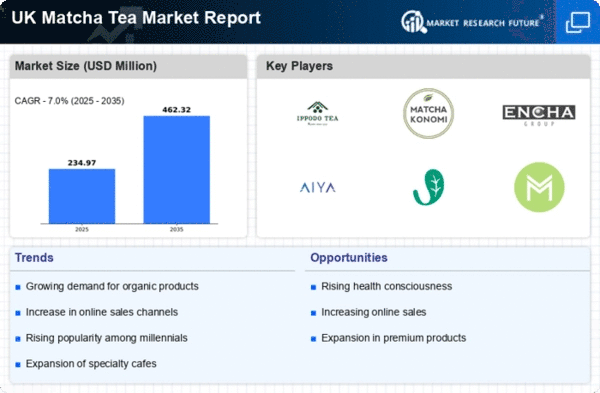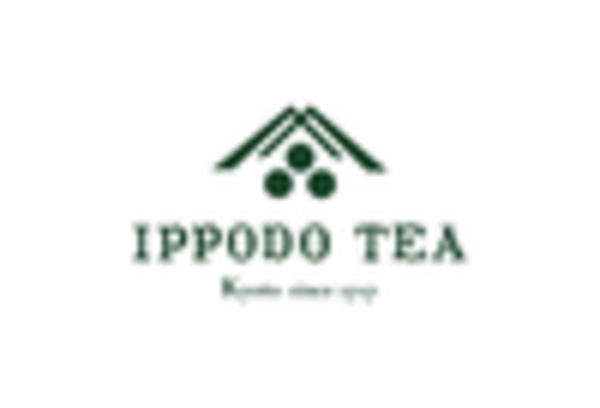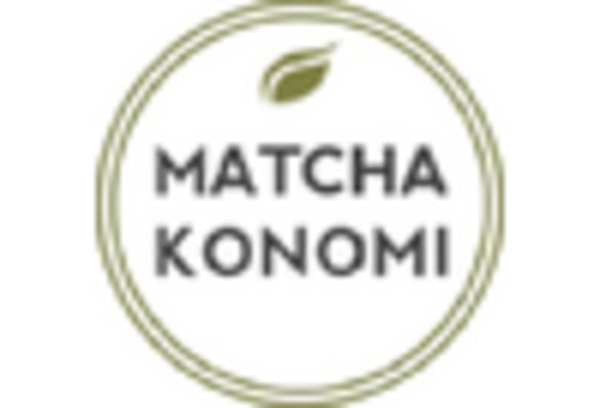E-commerce Growth
The rapid growth of e-commerce in the UK is transforming the matcha tea market. With more consumers turning to online shopping for convenience, the availability of matcha products through various e-commerce platforms has increased significantly. Data shows that online sales of specialty teas, including matcha, have risen by over 20% in the past year. This shift not only provides consumers with easier access to a wider range of matcha products but also allows brands to reach a larger audience. The matcha tea market is likely to see continued growth as e-commerce platforms enhance their offerings and marketing strategies to attract health-conscious consumers.
Culinary Versatility
The culinary versatility of matcha tea is another significant driver for its market growth in the UK. Matcha is not only consumed as a traditional tea but is also increasingly used in various culinary applications, including baking, cooking, and mixology. This adaptability allows the matcha tea market to appeal to a broader audience, including food enthusiasts and professional chefs. Recent surveys indicate that approximately 30% of consumers are experimenting with matcha in recipes, which has led to a rise in product offerings such as matcha-flavored desserts and beverages. This trend suggests that the matcha tea market is expanding beyond traditional consumption, potentially increasing its market share in the food and beverage sector.
Sustainability Awareness
Sustainability awareness among consumers is increasingly influencing purchasing decisions in the matcha tea market. As individuals become more conscious of environmental issues, they are seeking products that align with their values. Matcha, often marketed as a sustainable product due to its cultivation methods, is well-positioned to attract eco-conscious consumers. Recent studies indicate that approximately 40% of UK consumers are willing to pay a premium for sustainably sourced products. This trend suggests that brands within the matcha tea market that prioritize ethical sourcing and sustainable practices may gain a competitive edge, appealing to a growing segment of environmentally aware consumers.
Rising Health Consciousness
The increasing awareness of health and wellness among consumers in the UK appears to be a primary driver for the matcha tea market. As individuals seek healthier beverage options, matcha tea, known for its high antioxidant content and potential health benefits, has gained traction. Recent data indicates that the demand for functional beverages has surged, with the market for health-oriented drinks growing by approximately 15% annually. This trend suggests that consumers are willing to invest in premium products that align with their health goals. The matcha tea market is likely to benefit from this shift, as more people incorporate matcha into their daily routines, whether in lattes, smoothies, or as a standalone drink.
Cultural Influence and Trends
Cultural influences, particularly from Asian cuisines, are playing a crucial role in shaping the matcha tea market in the UK. The growing popularity of Japanese culture, including its culinary practices, has led to an increased interest in matcha. This trend is evident in the rise of matcha cafes and specialty shops across urban areas, catering to consumers seeking authentic experiences. Additionally, social media platforms have amplified this trend, with influencers promoting matcha as a trendy beverage choice. As a result, the matcha tea market is likely to continue expanding, driven by cultural appreciation and the desire for unique beverage experiences.
















